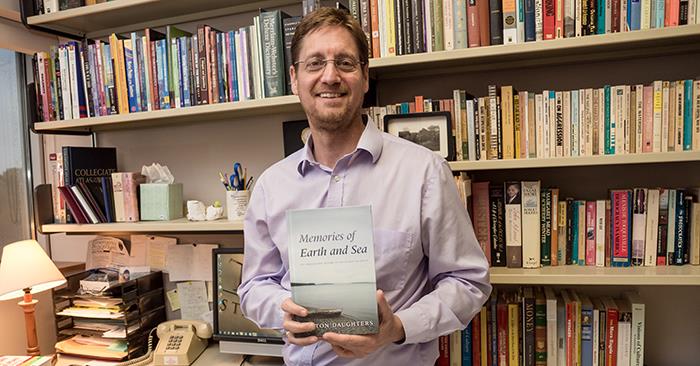Professor’s Book Looks at Cultural Change in Chile

Anton Daughters, associate professor of anthropology, recently published his book “Memories of Earth and Sea.”
The book examines Chile’s Chiloé Archipelago and a unique case of culture change and rapid industrialization in the 20th century. Since the arrival of the first European settlers in the late 1500s, Chiloé was given little attention by colonial and national governments on mainland Chile. Islanders developed a way of life heavily dependent on marine resources, native crops like the potato and the cooperative labor practice known as the minga.
Starting in the 1980s, Chiloé emerged as a key player in the global seafood market as major companies moved into the region to extract wild stocks of fish and to grow salmon and shellfish for export. The region’s economy shifted abruptly from one of subsistence farming and fishing to wage labor in export industries. Local knowledge, traditions, memories and identities similarly shifted, with younger islanders expressing a more critical view of the rural past than their elders.
Daughters recounts the unique history of this region, emphasizing the generational tensions, disconnects and continuities of the last half century. Drawing on interviews, field observations and historical documents, he brings to life one of the most culturally distinct regions of South America.
Several Truman students have had direct experience of the people and communities documented in this ethnographic history of Chiloé in the Chile Study Abroad course Daughters teaches every other year.
“Memories of Earth and Sea” is published by the University of Arizona Press. For more information, or to order a copy, visit uapress.arizona.edu/book/memories-of-earth-and-sea. To receive a 30 percent discount use the code AZFLR.

